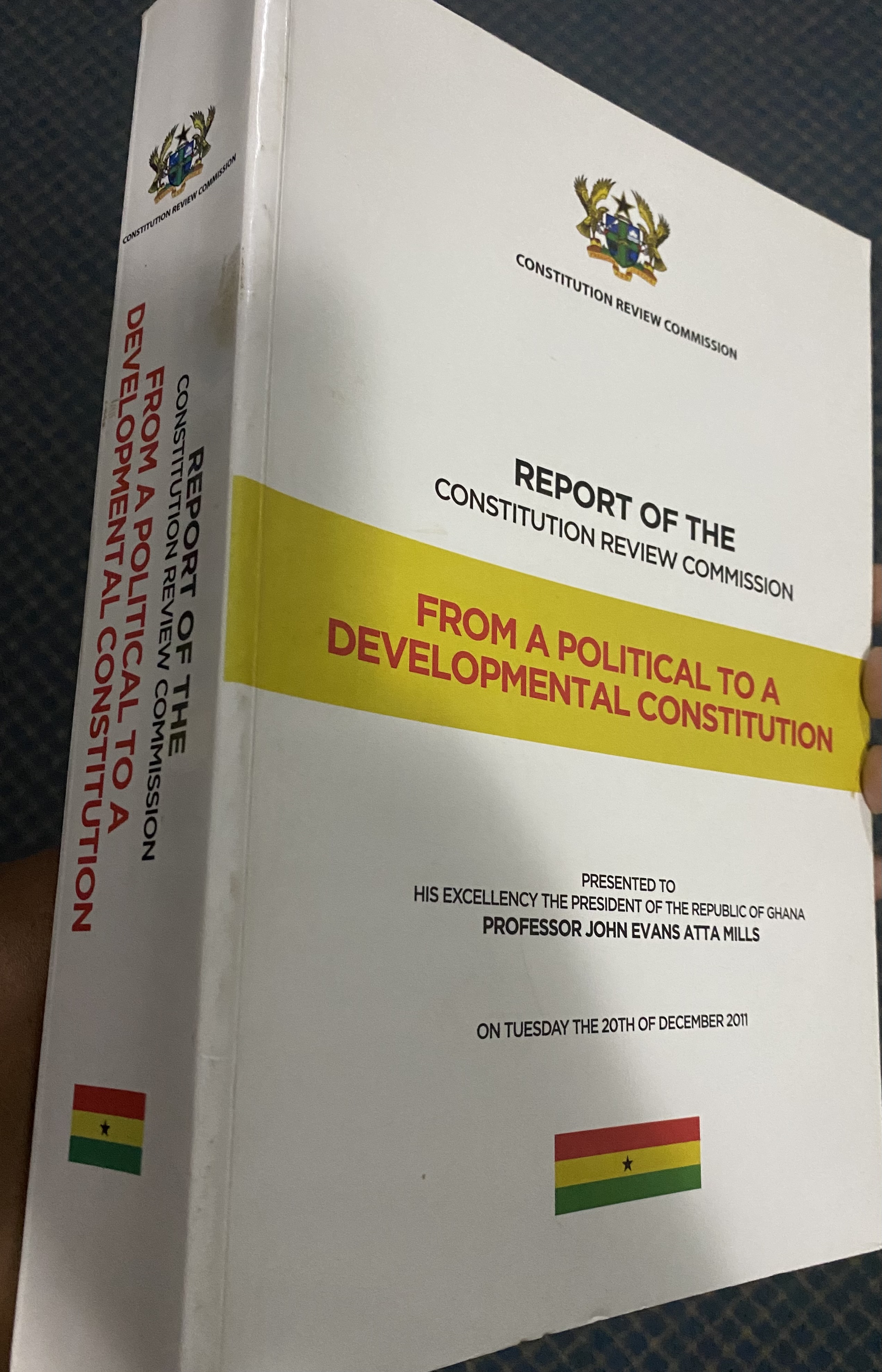In the last couple of months, a number of agitations have bedevilled this country with regards a number of issues. They have included among others appointment of ministers from Parliament, nomination and approval of ministers of state, equitable allocation of State resources, ex-gratis for Article 71 office holders, the status of First and Second Ladies, etc.
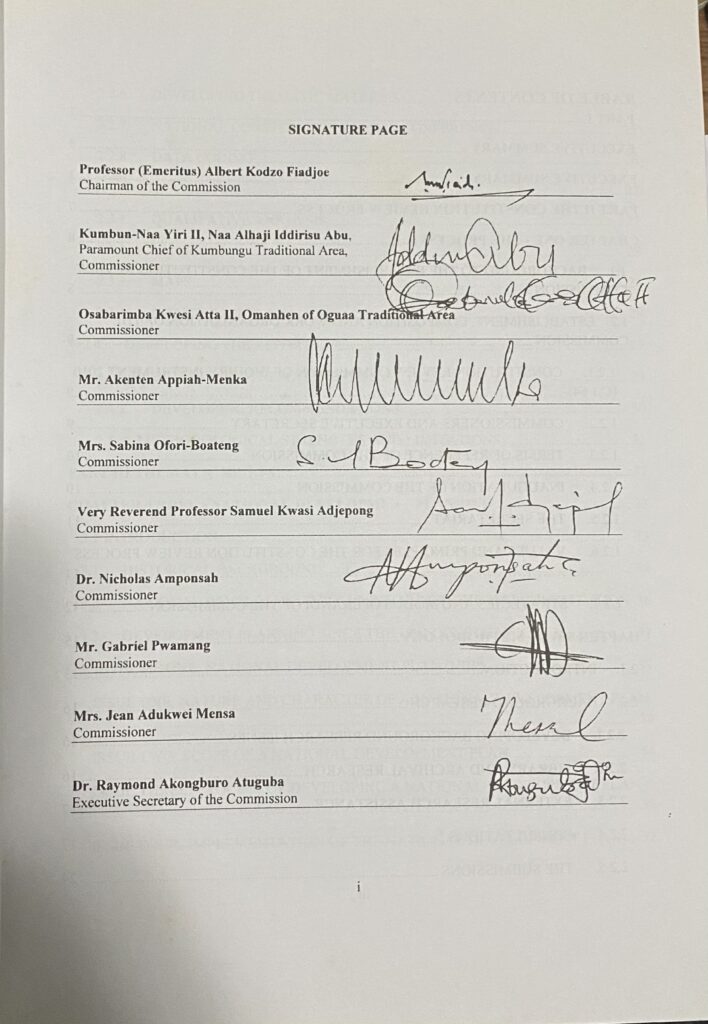
Agitation for the review of these issues have come up since then. Unfortunately, most of us have ignored the fact that most if not all of these matters are underpinned in our constitution. The best approach to address them will be to fundamentally overhaul the constitution.
Ahead of the 2008 General Elections, the NPP appreciating this fact, led a clarion call that if it won those elections and Nana Addo Dankwa Akufo-Addo became President, it would move to have a constitutional review undertaken. This was firmly echoed I n November 2008 by Nana Akufo-Addo who was the NPP flag bearer. He indicated at the second IEA Presidential Debate held by the Institute for Economic Affairs (IEA) in Tamale that he was going to undertake a full constitutional review process if he elected President
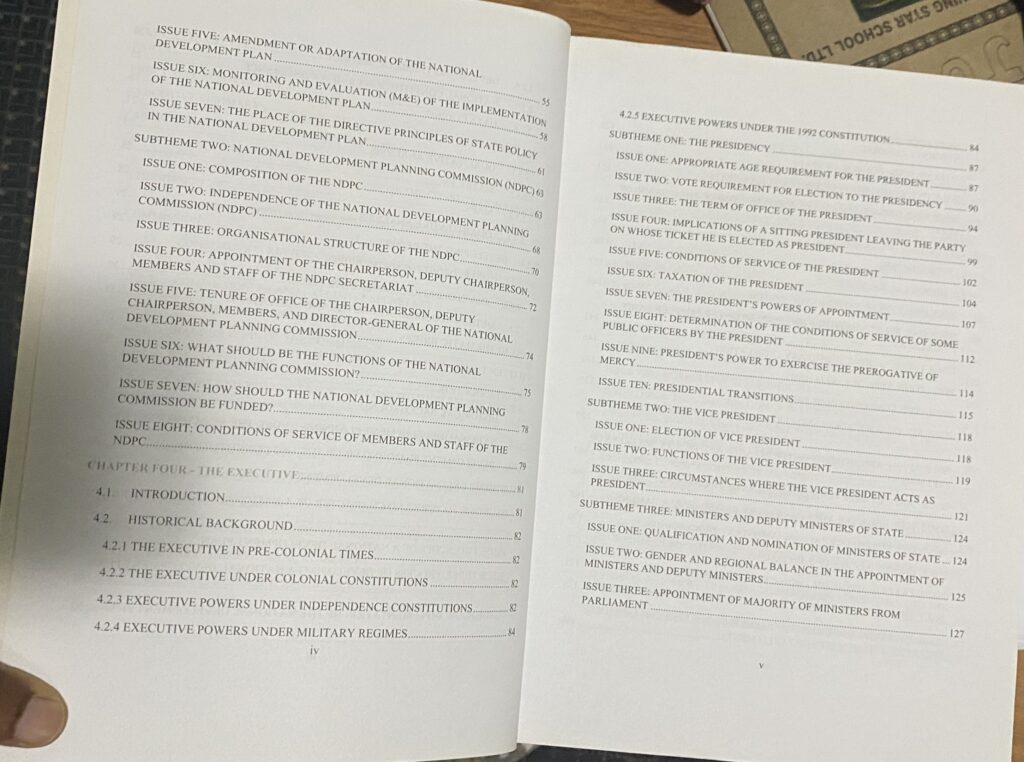
I believe that in 2009, the then President John Evans Atta Mills saw wisdom in this and commissioned a nine-member Constitutional Review Commission chaired by Prof (Emeritus) Albert Fiadjoe. The composition was quite balanced and bi-partisan with very astute legal brains. Over the many months that followed, the commission worked painstakingly collating views, researching best practices, and analysing data. In December 2011, the Commission submitted its final report of 960 pages.
Having read the very detailed report back-to-back twice, I am personally of the conviction that the report represented our best hope in transitioning Ghana from the hurriedly drafted constitution of 1992 tailored to suit the exigencies of the exiting military government. Interestingly, answers to most (if not all) of the vexed issues that our civil society players have been hammering on since the 1990s were all addressed in that constitutional review process and pronounced upon in the report.
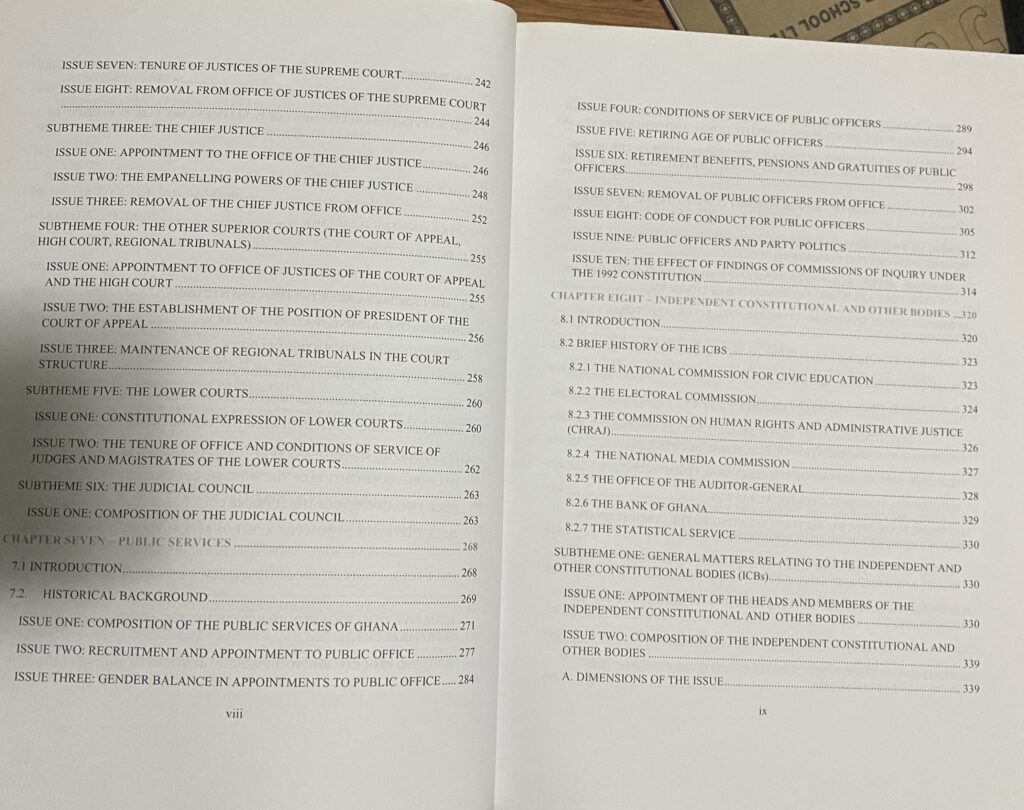
For me, it would have been the greatest legacy of that government if they had followed through the full implementation. That single document had sought to address every thorny issue that had bedevilled the effective growth of our democracy and attendant development of the State. The best opportunity was on hand to give the country a new constitutional framework to underpin a rapid growth.
Quite unfortunately, the President on 15th June 2012 issued a 25-page White Paper which ended up rubbishing many of the key recommendations by the Fiadjoe Commission. Upon his home-call a month later, some political actors were of the view that the successor government led by H.E. John Mahama will pick up the pieces and ensure full implementation. Unfortunately absolutely nothing happened.
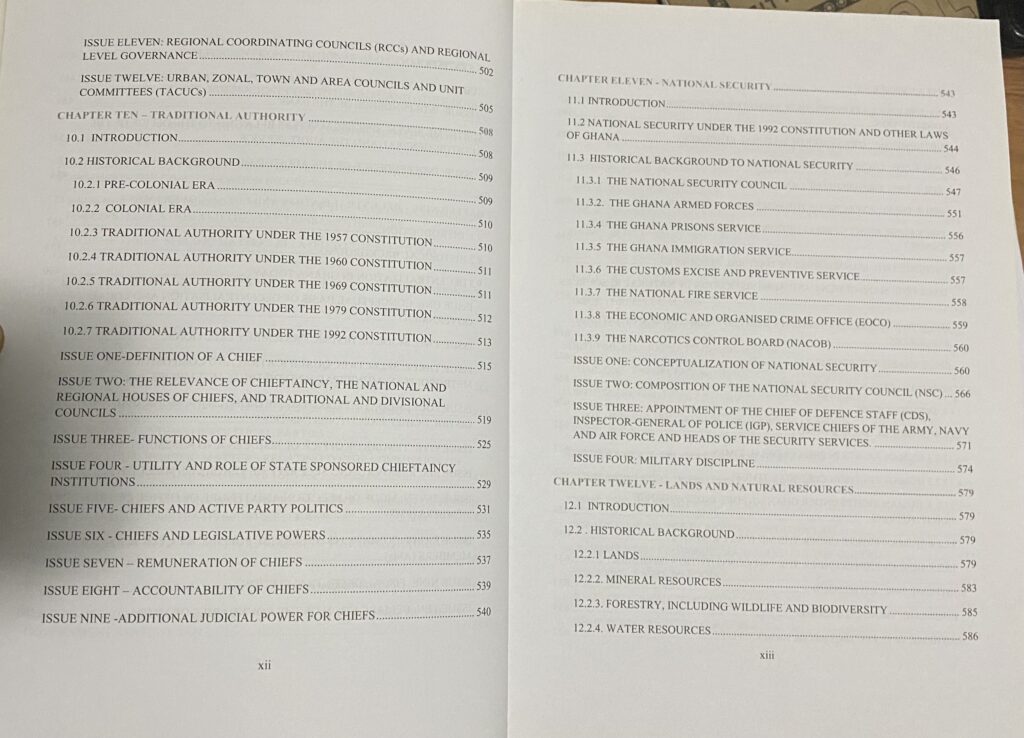
The NPP as a party in political opposition took the matter up and lambasted the government for doing nothing about the constitutional review, promising to actively take it up.
In 2016, the NPP eventually won power and many were those who waited with baited breath that constitutional review. Indeed, on an occasion during a radio interview, the President was asked why he had abandoned the Fiadjoe Report. In response the President indicated that any constitutional review that had over ninety amendments was not fit to be amended. In his view, the constitution needed a complete replacement. Unfortunately, the giver is in its first year following re-election and there is no clear plan for that review or replacement of our constitution.
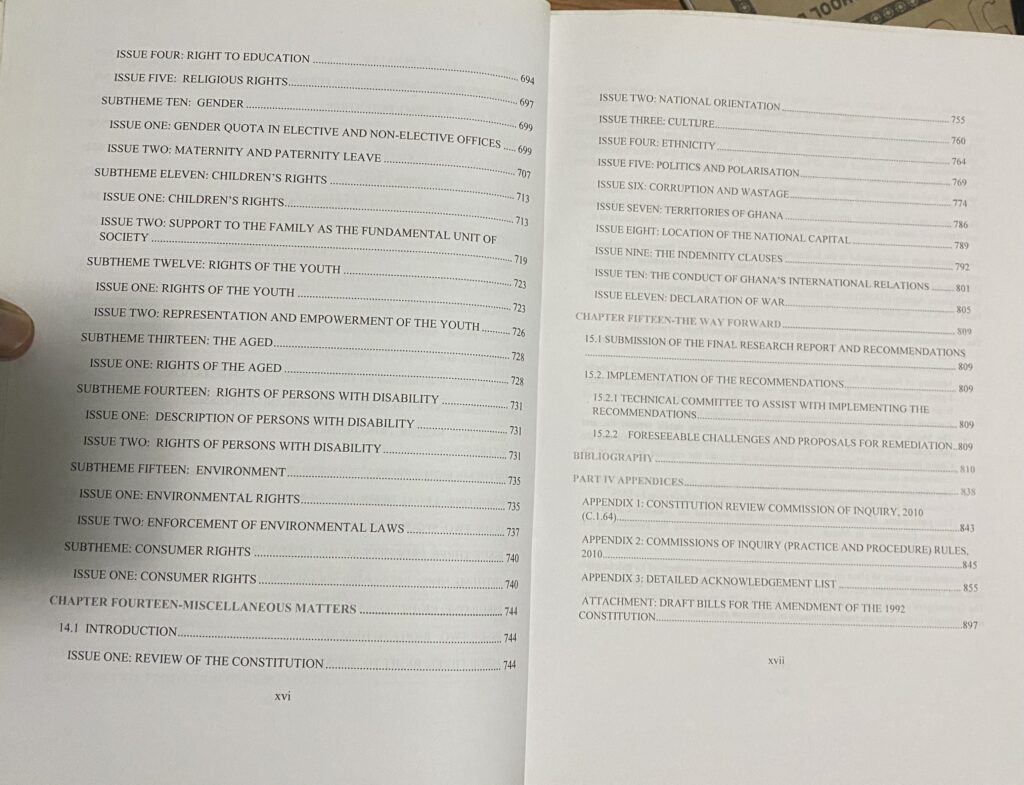
In January 2020, the revered legal luminary, Mr Sam Okudzeto in a radio interview with Citi FM. Among other things, he pleaded for Ghanaians, in general to be more interested in the outcome of the commission’s work stressing that “we need to bring that document back and review it.” “In fact I have been talking to a lot of people saying we as Ghanaians, not just [President Akufo-Addo], but we as Ghanaians… should bring it [the report] back for discussion and possibly [make] amendments, changes and implement it so that the constitution can be changed.”
One of his current concerns with the 1992 Constitution is the amount of power vested in the President. Mr. Okudzeto in that interview said he felt this culminated in too much pressure being put on heads-of-state.
It does appear that until we tackle head-on, the basic fundamental document underpinning our democracy, we’d be running round in circles without tackling the challenges that we are currently embroiled in.
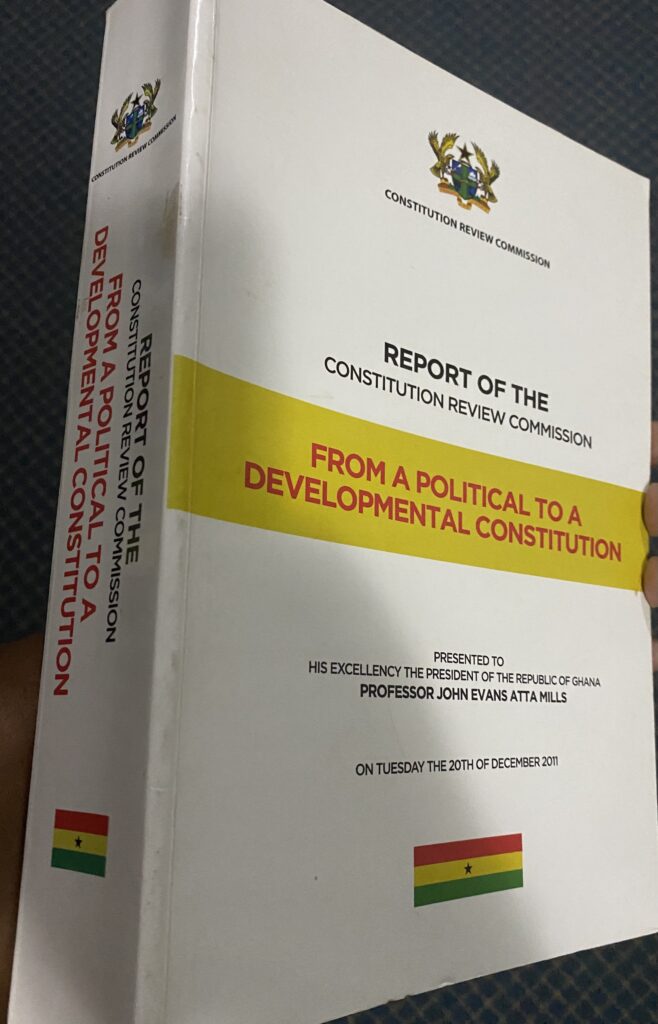
Let our leaders do the needful so we can preserve our constitutional democracy. The 1992 Constitution has served its term and is fast proving that unless radically altered or completely replaced, it can for now best be described as ‘moribund’.
Let them that have ears …
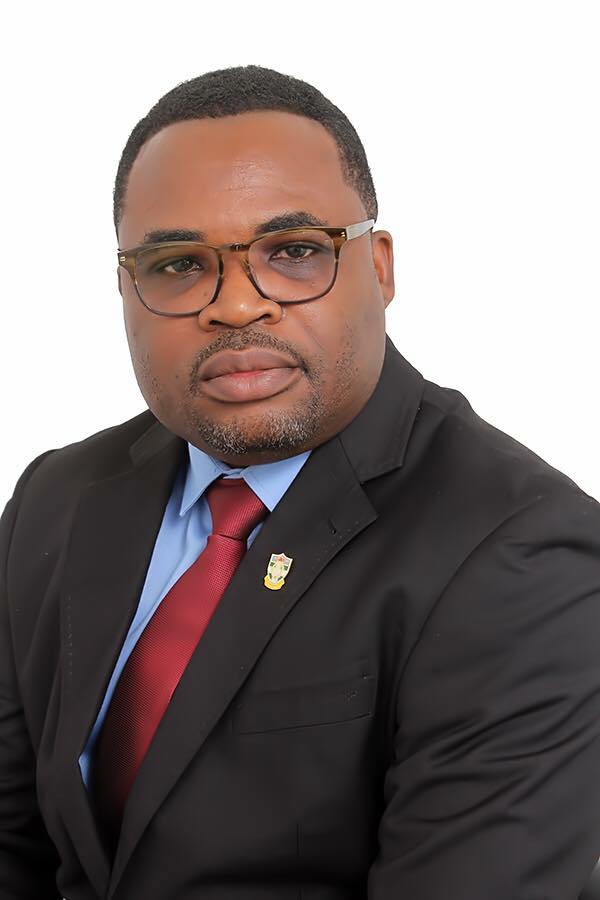
My dear friend,

